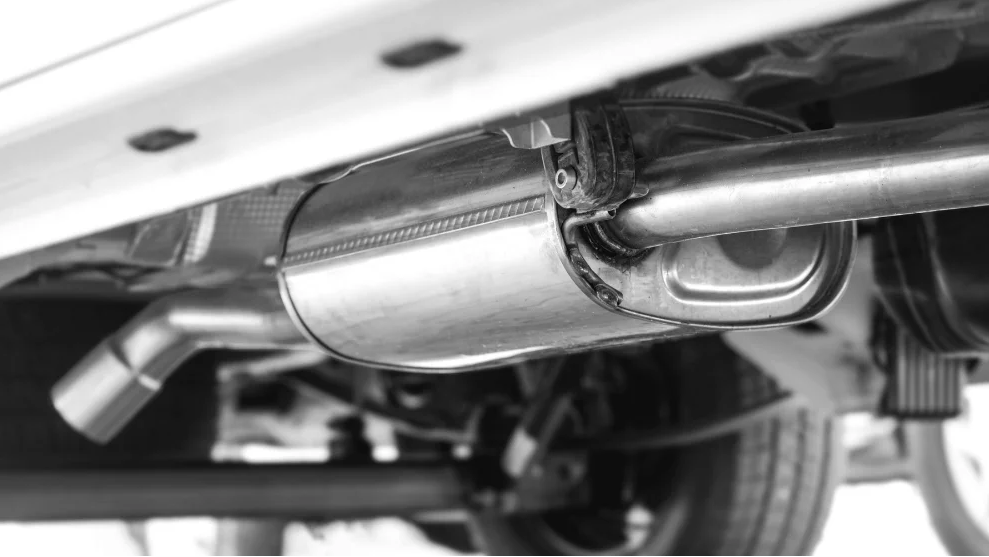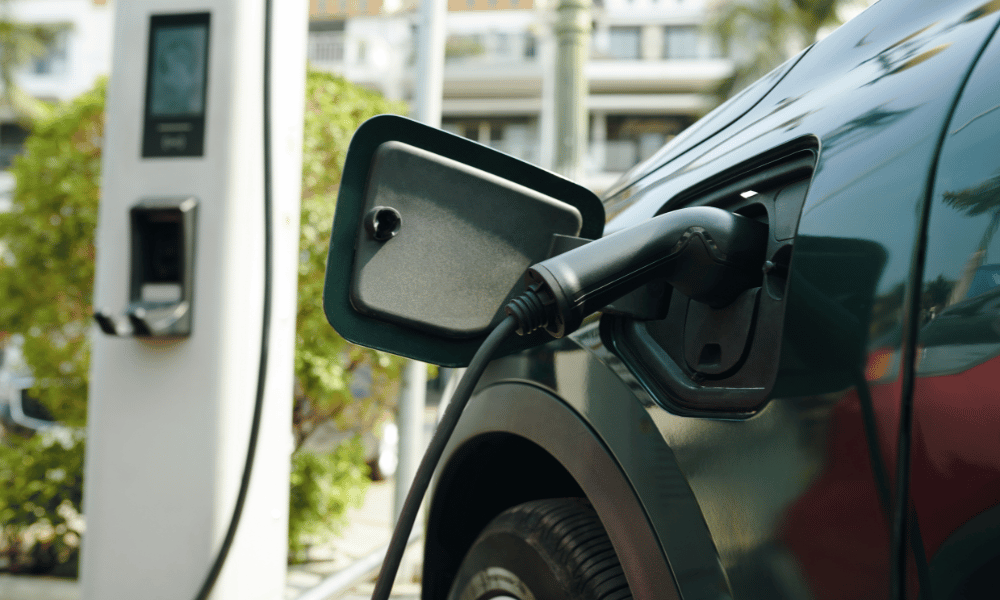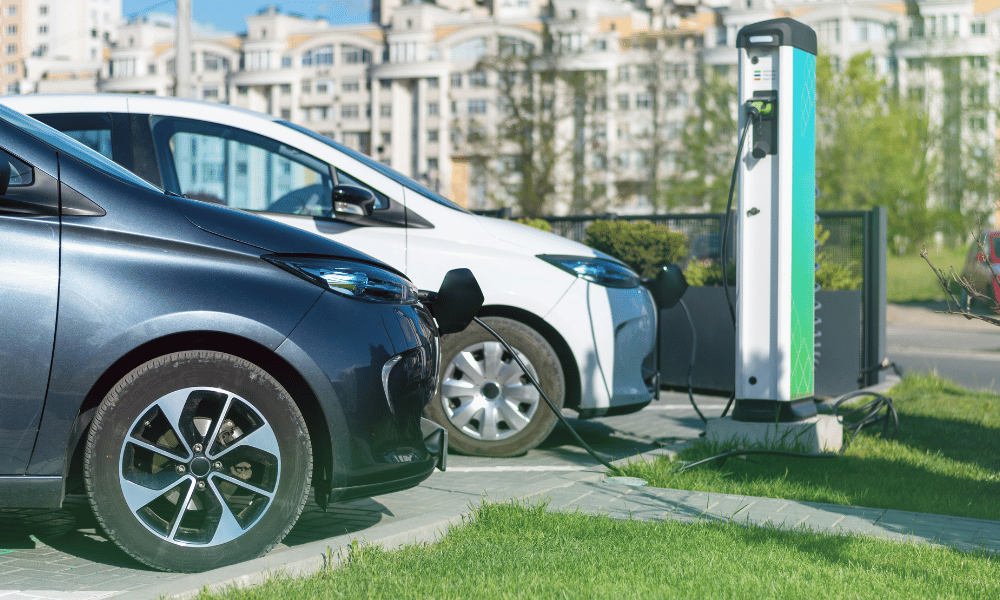Have you ever opened the hood of a standard vehicle? You know how it is full of stuff. Pipes, wires, metal pieces–it is a maze. There is something that is located somewhere in that mess, which is called a catalytic converter, small but important.
Now you may think–Do electric cars have catalytic converters? No there isn’t!
That may sound rather shocking, particularly when you have been driving gas cars all your life. They have to be provided in gas cars. Electric cars are simply constructed differently. This is an entirely different form of power used by them. You just do not need all that anyway.
Let us get down to the point and discuss why. We will also discuss the very workings of a catalytic converter. This way, you’ll totally understand why an EV can skip it. It’s a pretty cool topic once you get into it.
What does a Catalytic Converter even do?
To understand why, you need to know what this part does.A catalytic converter is a tiny factory under your car. It’s a metal box that is part of the exhaust system. This box is super important for gas cars.
Think about a traditional engine. It burns gasoline, right? When gas burns, it makes a lot of nasty stuff. We call these things pollutants. They are harmful to our air and to us.The hot exhaust gas full of pollutants goes right into this metal box.
Inside the converter, there are precious metals like platinum, palladium, and rhodium. That’s why thieves sometimes target them.
When the bad gases touch these metals, a chemical change happens. This is the “catalytic” part of the name. It speeds up a reaction.
The Job of the Converter
This reaction changes the very harmful gases into less harmful ones.
It transforms Carbon Monoxide which is very toxic into Carbon Dioxide. Still, Carbon Dioxide is a greenhouse gas, except it is far less toxic to inhale.
It transforms impurified fuel, referred to as Hydrocarbons, to harmless water vapor and further Carbon Dioxide.
It decomposes the Nitrogen Oxides to normal Nitrogen and Oxygen. These are gasses which are already present in the air that we breathe.
So, it is all cleaning up after the mess the engine does. It’s a necessary piece of gear for pollution control. Without it, your gas car would just be spewing a lot of toxins out of the tailpipe. You wouldn’t want that.
Why Don’t Electric Cars Exhaust?
Here’s where the magic of electric cars really shows.To answer, “Do electric cars have catalytic converters?” — ask this first: “Do they burn fuel?”
The answer? A big, clear no.Electric cars do not consume any gasoline or burn anything. They are powered by batteries and electric motors.
Imagine your phone battery with a giant, powerful variant – that is what an EV uses. It delivers electricity to the motor, and this rotates the wheels.No burning means no exhaust.No exhaust means no tailpipe, no fumes, and no pollution.
And if there’s nothing dirty to clean, you don’t need a cleaner — simple as that.That’s the core reason. Are electric cars fitted with catalytic converters? No, since they do not generate the poisonous fumes that converters are meant to clean. It is a completely clean road process.
What About Hybrids? Are They Different?
And this is something you must know. This is a bit confusing when we discuss hybrid cars.
A pure EV and a hybrid car are not similar. In a hybrid, there is an electric and a gas engine.
As the gasoline engine is operating, fuel is burned. And what do we know about the combustion of fuel? Yep, it makes nasty exhaust gasses!
So, most hybrid cars do have a catalytic converter. The gas engine needs it to stay clean. It’s a requirement just like a regular gas car.
The only cars that can totally skip this part are the ones that are 100% battery electric.
What Are the Real Benefits of Not Having One?
You might think, “Okay, so no converter. Big deal.” But actually, it is a big deal for you as the owner. Not having a catalytic converter gives you some great benefits.
Less Worry About Theft
The gas cars come with costly metals inside a catalytic converter and thus the thieves usually steal them.It is likely that you have seen such stories in the news.However, your electric car lacks one and, therefore, it is not a target.It comes one thing less to worry about when parking.
Lower Maintenance Costs
Catalytic converters can break, and repairs cost a lot.Electric cars skip that part completely — it’s not there, so it can’t fail. Plus, EVs have fewer moving parts overall, which means fewer repairs and lower costs.
Cleaner Air Right Now
This one helps everyone. Because you are not burning fuel, you are not creating local pollution. Every drive keeps those dirty fumes out of the air — cleaner streets, fresher air, healthier communities.
This is the main reason why people are switching over. Do electric cars have catalytic converters? No, and that’s the best part because they don’t need the cleaner in the first place!
Is There Any Type of ‘Catalyst’ in an EV?
This is a really smart question.If we think of a “catalyst” as something that helps a good change happen, then yes, your EV has them!
An EV is a catalyst for change in the car world. See what I did there? But in terms of actual parts, the EV’s battery and its motor are the important bits. The most complex technology in the car is about managing the battery.
Things like the cooling system for the battery are super critical. It needs to stay at a perfect temperature. This keeps it running well for many years.Also, the regenerative braking system is a clever bit of tech. It captures energy when you slow down. It sends that energy back into the battery. That’s a huge efficiency booster.
These are the new complex parts you focus on in an EV. They replace the engine, the transmission, and the exhaust system of a gas car.
What of the Pollution to generate Electricity?
You may be wondering, “Alright, the electricity must come somewhere, right? You have a point – you are quite right to ask that.
Electric cars do not have a tailpipe and therefore no direct emissions. However, the power to energize them is produced somewhere. If it comes from coal, that pollutes. If it comes from wind or solar, that’s super clean.
The good news? The grid keeps getting cleaner every year. More renewables, less pollution.
So your EV actually gets cleaner over time — pretty cool, right?
And even considering all these power plants, the road and all you can imagine, EVs nonetheless produce significantly less pollution compared to gas cars. And that pollution is not close to home, but in some distant place.
When we say, then, do electric cars have catalytic converters? and the answer is no, it is a purer design. It’s a better starting point for a cleaner world.
Tips for Enjoying Your Converter-Free Car
You do not need to worry about exhaust issues so you can do the fun stuff. Following are some suggestions on how you can maximize your new clean ride:
Remember to Fill Up at Home: Train yourself to plug in your car when you come home. Just like your phone!
Find Free Charging: Looking to charge the phone freely? Find public charging locations now with the help of apps. Why not save a buck?
Go Simple Maintenance: You just will not have to think about such things as tires, brakes, and wiper windshield fluid so long.
Keep in mind that while: Do electric cars have catalytic converters? is a simple ‘no’, they have some amazing machinery focused on batteries and range instead of exhaust fumes.
FAQS
1.Are there catalytic converters in electric cars?
No, they don’t. Electric vehicles do not combust fuel, thus they do not produce exhaust, and do not require a catalytic converter.
2.Why don’t electric cars require catalytic converters?
Due to the fact that they are electrically powered and not gasoline powered. There is no burning of fuel and therefore no gas to clean.
3.Are hybrid vehicles fitted with catalytic converters?
Yes. Hybrids are powered by a gas engine part of the time hence require one to manage the emissions.
4.What do you think is in place of the catalytic converter in an electric car?
Nothing replaces it. Electric cars simply don’t need one — they use batteries, not engines.
Final Thoughts:
We started by asking, “Do electric cars have catalytic converters?” The answer, as we found out, is no. Electric cars use a completely different system. They run on a battery and a motor. They don’t burn gasoline. They don’t produce the harmful exhaust gasses that need cleaning up.
This means you get a car that’s cleaner for the planet right on your street. Plus, you get to avoid a costly part that is often stolen from gas cars. If you’re still on the fence about switching, my suggestion is this: Go try one out. Once you drive an electric car, you’ll see why the old parts, like the catalytic converter, are now just totally unnecessary history. You’ll understand why this new way of driving is so cool. Give it a shot! You won’t regret it.



